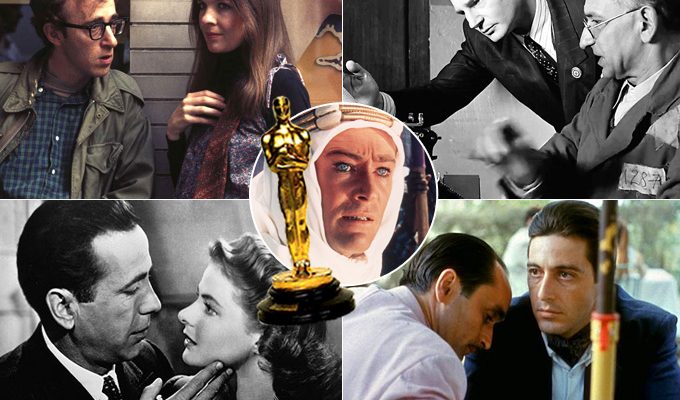 70. “The Sound Of Music” (1965)
70. “The Sound Of Music” (1965)
While our childish hearts may twirl on the mountainside with Julie Andrews, our sober grown-up heads do tell us that the beloved Robert Wise musical is really so much cheese. The story of a singing nun who renounces her nunship to mother a family of moppets, wed their stupidly handsome father (Christopher Plummer) and evade Nazis, we take a Plummer-esque stance on it now: kind of embarrassed by our involvement.
69. “Gigi” (1958)
A sickly and overstuffed Technicolor Lerner/Loewe musical, significantly inferior to some of Vincente Minnelli‘s other song-and-dance classics, and mostly lacking in memorable tunes (beyond Maurice Chevalier‘s creepy-even-then “Thank Heaven For Little Girls”). Looks great, but feels like eating an entire wedding cake.
68. “How Green Was My Valley” (1941)
Best remembered now as the film that beat “Citizen Kane” (and as a favorite of Frasier Crane), this sturdy family saga set in a Welsh mining town is decent, but curiously unmemorable. John Ford‘s favorite of his own films, but if you were going to give only one of his movies Best Picture, why would it be this one?
67. “Gentleman’s Agreement” (1947)
Two years after the end of the war and the discovery of the extent of the Holocaust’s atrocities, this serious-minded, well-intentioned story of a journalist “going undercover” as Jewish to expose anti-semitic sentiments must’ve seemed timely. Now it seems tame and rather preachy, with Gregory Peck on stiffer-than-usual good-guy form, though strong support from John Garfield and Celeste Holm does enliven things.
66. “Tom Jones” (1963)
Reflecting as much the mores of the time it was made as the time in which it was set, Tony Richardson’s romping, undisciplined version of Henry Fielding’s novel is best watched now for Albert Finney’s performance as the titular 18th century playboy, because there’s little other substance to it.
65. “Chicago” (2002)
Rob Marshall’s starry adaptation of the 1975 broadway hit may have been the first musical to win Best Picture since “Oliver!” but still feels like an odd, slight choice over the same year’s “The Pianist.” The glittery, dress-uppy vibe of the Jazz Age setting and musical numbers memorably described by one critic as “calisthenic” don’t help with the insubstantiality either.
64. “Braveheart” (1995)
Mel Gibson’s full-throated historical epic may seem blusterous and self-aggrandizing in retrospect, but props are due to it for some truly thrilling battle scenes and an overall impressive scope. It’s Hollywoodized bunkum, of course, but of the entertaining, “they’ll never take…our FREEDOM” variety.
63. “Grand Hotel” (1932)
Before ‘The Grand Budapest’ there was simply ‘Grand,’ a lavish, nearly as star-crammed precursor to Wes Anderson’s latest. The glorious Greta Garbo, Joan Crawford, Wallace Beery and Barrymores John and Lionel make it a ‘30s all-star team up, but the portmanteau format it popularized (stories either not at all or barely connected) remains unsatisfying to this day.
62. “Oliver!” (1968)
The Carol Reed version of the Lionel Bart musical based on the Charles Dickens book is a perfectly decent adaptation of the material, and Mark Lester as Oliver is preternaturally angel-faced, but it feels pretty slight, especially compared with David Lean’s brilliant non-musical version from 1948, and also with the more textured efforts in Reed’s own catalogue.
61. “Kramer Vs. Kramer” (1979)
Reasonably well-acted and intermittently powerful divorce drama which hasn’t dated well in the last 35 years, now feels decent, but unremarkable. The men’s-rights-ish gender dynamics, with Meryl Streep demonized and Dustin Hoffman sanctified, feel especially troubling these days.

